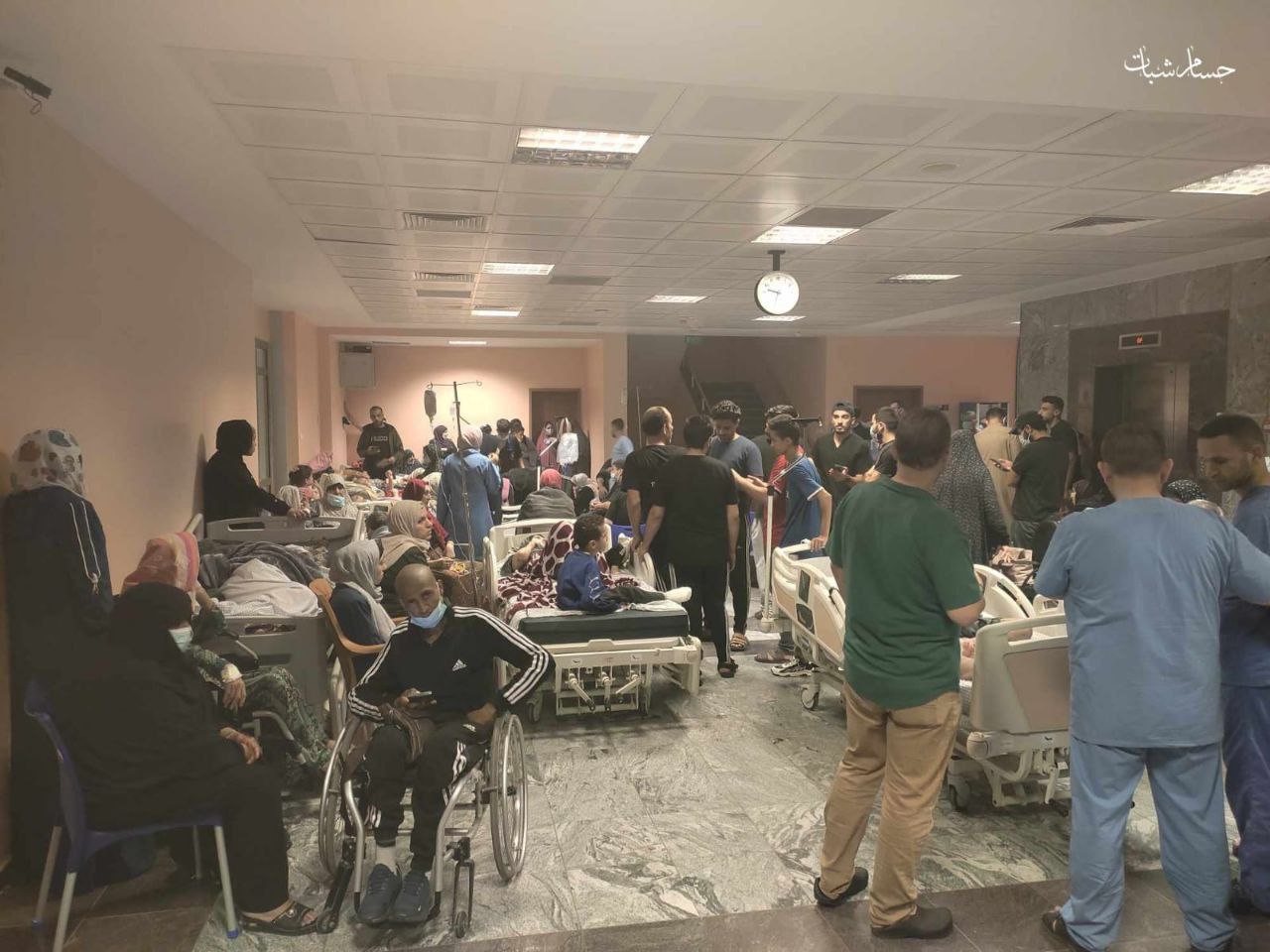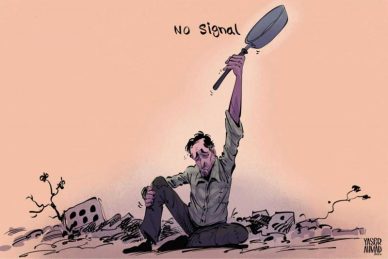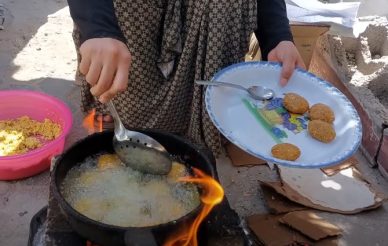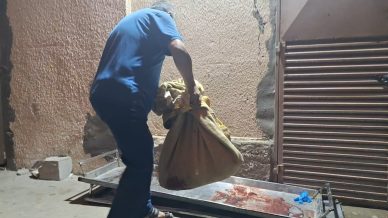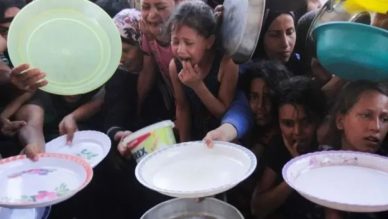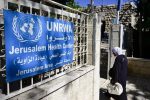GAZA, (PIC)
The mocking image shared by an Israeli soldier inside the Turkish-Palestinian Friendship Hospital dedicated to cancer patients in Gaza, is not an ordinary one to be ignored. The soldier wrote “Death to Arabs” on the hospital wall, which was destroyed in the first month of the ongoing aggression and turned into a military base. This left cancer patients to their fate, unable to find shelter or medicine due to the ongoing conflict, which has now lasted nine months. They can’t leave Gaza for necessary treatment because the Rafah crossing is closed and destroyed, putting their lives at severe risk.
The soldier’s image illustrates the extent of Israeli mockery and disregard for Palestinian lives in Gaza, particularly those of cancer patients. It underscores a deliberate and premeditated intent to commit genocide, making the Gaza Strip uninhabitable, especially for the most vulnerable who already suffer from dire health conditions due to the siege. These conditions have worsened since the aggression, as evidenced by the targeted destruction of the cancer treatment hospital from the conflict’s early days.
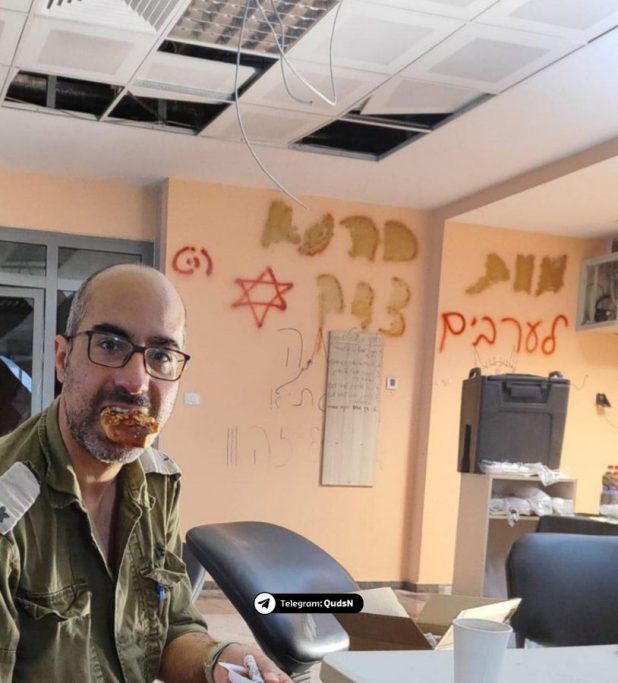
Tragic picture for cancer patients in Gaza
Dr. Mohammad Abu Nada, the medical director of the Turkish-Palestinian Friendship Hospital, reveals a terrifying aspect of the suffering cancer patients in Gaza face amidst the Israeli occupation’s aggression. He explains that cancer, tumor, and blood disease patients suffer doubly or even triply because they endure the war’s horrors, lack of treatment, and absence of dedicated treatment facilities.
Many chemotherapy drugs, whether intravenous or oral, are currently unavailable. Dr. Abu Nada expressed profound sorrow that even supportive and hormonal drugs are unavailable. Moreover, these patients have nowhere to go since the Turkish-Palestinian Friendship Hospital, the only facility caring for them, is currently non-existent.
Many newly diagnosed cases lack treatment, with about 200 new patients being diagnosed monthly. During the ongoing aggression on Gaza, there have been between 1,400 to 1,700 cancer patients, some reaching us and some not. He emphasized that one of the problems faced is the displacement of these patients to unsuitable locations.
He noted that since the closure of the Rafah crossing, no patient has left except for some children who traveled last week for chemotherapy and radiation therapy outside Gaza.
Urgent need for evacuation outside the Strip
A medical source in Al-Arish, Egypt, announced the evacuation of 21 cancer patients from Gaza through the Kerem Shalom crossing for the first time since it was closed in May when the Israeli army took control of its Palestinian side. According to Mohammad Zaqout from Gaza’s Health Ministry, about 5,000 patients have been evacuated since the war started, but 25,000 others still need treatment abroad.
Among these, 10,200 are cancer patients, including about 1,000 children, and 250 need immediate evacuation from Gaza. The United Nations has repeatedly sounded the alarm about the humanitarian crisis in Gaza, where residents suffer from starvation and bombings. The few remaining hospitals struggle to function, and getting food and other necessities becomes increasingly difficult. Due to fuel shortages, the Palestinian Red Crescent announced it had to stop more than a third of its ambulance fleet.
10,000 cancer patients deprived of treatment
ActionAid International warned early this year that 10,000 cancer patients in Gaza lack access to medications and treatment due to ongoing bombings, dwindling medical supplies, and the healthcare system’s collapse. According to a statement, the only hospital in Gaza specializing in cancer treatment, the Turkish-Palestinian Friendship Hospital, ceased operations in early November after running out of fuel and sustaining severe damage from airstrikes.
Grim situation before the aggression
The World Health Organization’s 2019 report described the situation for cancer patients in Gaza: patients often wait months for treatment after diagnosis. Obtaining permits to receive necessary healthcare outside Gaza is arduous and unpredictable, with many patients submitting multiple applications before succeeding. Some never receive the needed permits.
WHO noted that Gaza hospitals’ capacity to provide adequate diagnostic and treatment services for cancer patients is severely limited due to chronic medication shortages and a lack of medical equipment. Essential tools like nuclear imaging for cancer spread assessment, radiotherapy equipment, and some specialized surgeries are unavailable. Throughout 2018, more than half of the essential chemotherapy drugs were sufficient for less than a month.
Many patients must seek healthcare in other parts of the occupied Palestinian territories or abroad, but leaving Gaza for treatment requires an Israeli permit, a process that can take several months. In 2018, 39% of patients’ requests to leave Gaza for healthcare were unsuccessful.

